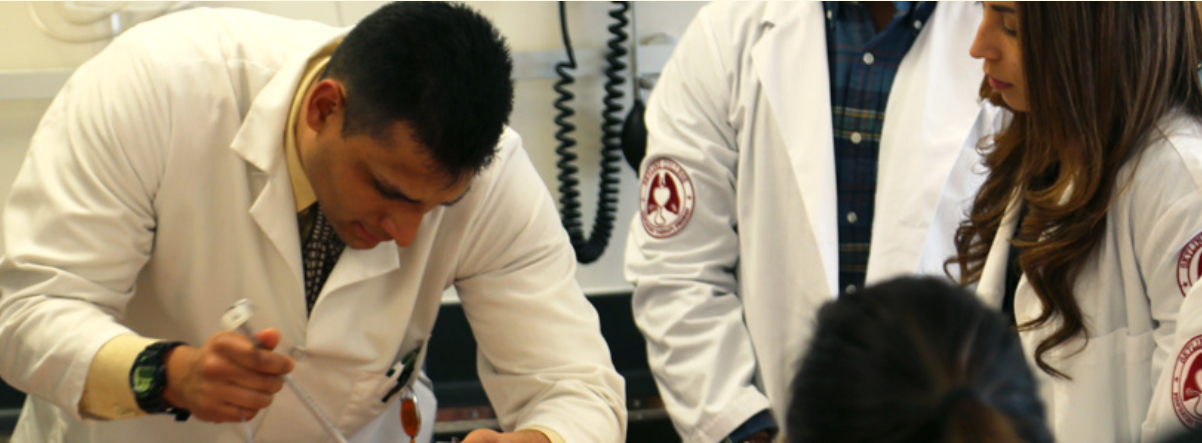Supporting Our Heroes
SMCCCD Programs, Students, and Alumni:
Making a Difference During COVID-19
The San Mateo County Community College District’s colleges, Students, and alumni have stepped up in ordinary and extraordinary ways to help our District and broader community during the COVID-19 pandemic. Over the next few weeks, we will share stories that may inspire you and will show you the empathy and giving spirit embodied throughout the District.
The Respiratory Care Program at Skyline College

Our stories begin with the Respiratory Care Program at Skyline College, whose students, administrators, faculty, and alumni are helping in the effort to combat COVID-19. Skyline College’s Respiratory Care Program, which began in 1970, admits up to 25 Associate in Science students per year and includes upwards of 50 students at any given time. The program is also one of two approved Respiratory Care Bachelors of Science programs in the California community College system. This online-only B.S. program attracts licensed practitioners from around the state, all of whom work in the industry and are deeply immersed in the COVID-19 response.
When the COVID-19 crisis hit the United States, the Respiratory Care Program was ready with both human and equipment resources. Through a program in the Governor’s office, Respiratory Care is making their nine ventilators available to local hospitals, to be used by patients who have contracted the virus.
The Respiratory Care Program also responded to community need by providing students to work on the front lines. As a result of the crisis, the Governor’s office issued an executive order allowing certain college healthcare programs to modify licensing regulations so students could receive work permits before graduation. After several hospitals and healthcare organizations reached out for help, 24 Respiratory Care seniors in their final semester were fingerprinted and applied for work permits. These efforts were supported through donations to the Foundation, which paid for the cost for fingerprinting and the licensure exam.
Students are available and ready to work in clinical care units to support patient care at the Palo Alto V.A., Stanford Hospital, the Sub Acute Unit in San Jose, and Seton Hospital in San Mateo. Their work on the front lines will count as clinical hours and will give them experience to help meet the educational requirements to support on-time graduation.
Over the coming weeks, you’ll hear more about the State’s healthcare call to action (California Health Corps) District’s allied healthcare programs, students, and alumni who are making a difference. To support the District’s students or programs, visit the Foundation’s donation page. To help the District’s students with their most basic needs during this crisis, visit the Foundation’s Emergency Fund donation page.